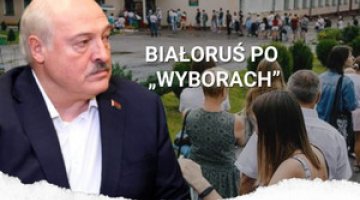A series of social protests in Belarus
On 5th March approximately a thousand people protested in Brest against the presidential decree on ‘preventing social parasitism’. The decree came into force in spring 2015 and made it possible to for a special tax to be imposed on all citizens who work less than 183 calendar days a year. This was another demonstration in a series of protests which have been organised since 17th February across Belarus under the slogan ‘We are not freeloaders!’ Participation has ranged from several hundreds to two thousand people. The demonstrations have been held not only in Minsk and the remaining five district cities but also in smaller towns such as Baranovichi or Bobruisk. The protesters have been demanding, above all, that the decree be repealed and, should it not be, they have announced they will continue the protests.
Commentary
- Although the decree has been in effect for two years, people to whom it is applicable have been notified only in recent months that they have to pay tax worth the equivalent of over US$ 200 for each year, starting from 1st January 2015. To date only 10% of 470,000 people who have received the notifications (from nearly 5.5 million Belarusian citizens of working age) have paid the tax, despite the fact that the deadline for payment expired on 20th February and that there are punishments for delays in payments, including community service. The decree has been designed to make Belarusians start work or not to give up legal employment. It has met with opposition from Belarusian citizens, though, who are frustrated not only with their declining living conditions but also with the growing unemployment rate. According to official statistics, it reached 5.8% the previous year, although until recently the government claimed it stood at only 1%.
- These are the first such large social protests that have been held in Belarus since 2011. At that time the demonstrations were also sparked off by social issues. Although the protests have been organised by activists from certain Belarusian opposition groups and independent trade unions, people unaffiliated with opposition activities constitute a substantial proportion of the protesters. This points to growing potential for protest in a Belarusian society which has grown tired of the economic recession which has been ongoing for over two years. For this reason the protesters have not only been calling for the decree to be scrapped, but have also been broadly criticising the policies pursued by the government, including by President Alyaksandr Lukashenka.
- So far the Belarusian government has not had applied repression against the protesters, and none of the demonstrations has been dispersed. The law enforcement authorities have limited their measures to imposing fines or detaining selected protesters. Appeals against tax decisions have also been facilitated. It has also been announced that the law will be relaxed. The regime’s cautious reactions are probably dictated by the need to continue dialogue with the EU and the fact that the protests are held on social grounds. Nevertheless, Lukashenka does not intend to give up the decree, even though it could calm the social unrest. He has been publicly accusing the protesters of aligning themselves with hostile external forces which seek to destabilise the situation in the country. The state-owned television station has broadcast material warning against implementing the bloody scenario of Kyiv’s Maidan events in Belarus. As a result, it cannot be ruled out that the protests will grow in strength and become more politicised, particularly in the context of the unofficial celebration of Independence Day, traditionally organised by the opposition on 25th March.
Kamil Kłysiński





